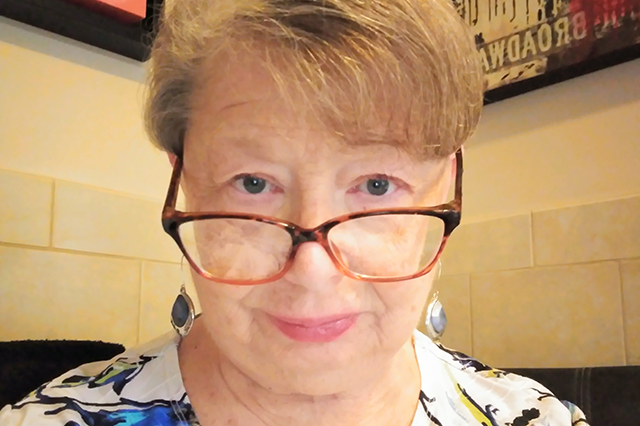Carol Conley is a survivor.
She fought off colon cancer 18 years ago. So, she wasn’t about to let a heart attack and stroke five years ago take away her new lease on life.
“Having cancer was a great gift. It really made me see what’s important. You have to enjoy yourself,” said Conley, a AAA member from Rhode Island. “I’ve had a wonderful life. I enjoy it too much to let it go so easily.”
Conley has a job she loves at the Rhode Island Film and Television Office and a boss she couldn’t live without – literally. Like many women, she didn’t recognize the signs of her heart attack, but he knew something wasn’t right.
They had gone out to lunch in April 2017 to celebrate his work anniversary. She wasn’t in the mood to eat – the first clue. She mentioned that she was not feeling well and would like to go home to lie down afterward instead of returning to the office – another clue. She told him she would call her primary care physician in the morning. That wasn’t soon enough for him.
Two Choices
Her boss didn’t like the way she looked and wanted her to go to the emergency room. She insisted she just wanted to go home.
“He said ‘I’ll give you two choices: I will take you to the emergency room or I will call an ambulance,’” she recalls. She chose the former to avoid the embarrassment of having an ambulance show up at the restaurant.
At the emergency room, Conley still insisted she was fine, but tests showed otherwise. She was having a heart attack, and it had caused a small stroke.
“It was kind of simultaneously. They told my boss that if he had let me go home and lie down, I might not have woken up,” Conley said.
She had seen her primary care physician just the week before and got a clean bill of health. He even did an electrocardiogram, and everything was fine.
She had none of the telltale signs of a heart attack – no chest pain, arm pain, jaw pain or shortness of breath. However, the previous night, she had a headache that wouldn’t quit and blurry vision. She also has diabetes and attributed it to that. But they were symptoms of the stroke.
“If it wasn’t for the stroke, I might not have ever gone to the hospital. I might not have ever thought that there was anything wrong,” Conley said.
At the hospital, they found a blockage. She was transferred to another hospital for a catheterization and stent placement.
Storytelling
Conley became involved with the American Heart Association in 2019 as one of its storytellers.
The organization was looking for women to share their heart attack and stroke survival stories as part of an awareness campaign. Conley was paired up with a woman who had a stroke when she was just 12 years old and another who was a heart-transplant survivor.
“These were incredible women. We just had a connection from the get-go, and we had a wonderful experience telling our stories and recording them for the Go Red for Women luncheon that year,” Conley said. “We are still fast friends.”
In telling their stories, they hope to convey the message that heart and brain illnesses can happen to anyone at any time, so pay attention to your body.
“If you don’t feel good, and you can’t put a finger on it, get it checked out,” Conley urges. “Don’t go home and lie down.”
Since then, she has done some media interviews for the Heart Association and volunteers for other projects when she can.
“The Heart Association has wonderful programs. They have a great support system. They do wonderful research, and what they’re doing can help prevent what happened to me from happening to other women. So, it’s definitely worth contributing to and getting involved.”
At AAA Northeast, we recognize that Conley is not our only member affected in some way by heart and brain issues. We encourage all of our members to come along with us to the Southern New England Heart Walk on June 10 at Bryant University in Smithfield, R.I., or in other ways support the efforts of the American Heart Association.











